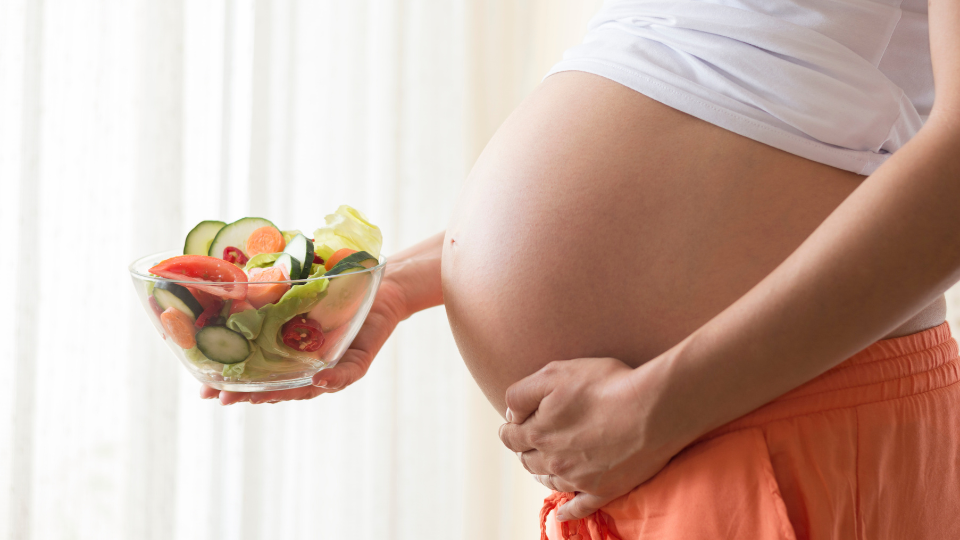
A pregnant woman’s nutrition influences the growth and development of her foetus and forms the foundations for the child’s health.
A healthy diet is important for both mother and baby throughout pregnancy because this will help them to get the nutrients they need to stay healthy and for the baby to grow and develop. It is therefore important that you eat a healthy, balanced and varied diet when you are pregnant.
The basic principles of a healthy diet should be followed whilst pregnant. This includes eating 5 portions of fruit and vegetables a day, including wholegrains, choosing lean meat, fish and other sources of protein such as eggs and pulses and eating calcium-rich foods such as milk and yoghurt and to include 2 portions of fish per day one being oily fish.
Foods to avoid or in pregnancy
There are some foods that a pregnant woman should avoid eating and these include uncooked meat, raw cured meats, liver, raw shellfish, raw milk and cream (unpasteurised), some types of cheese, all types of pate, certain types of fish and soft-serve ice-cream from machines in vans or kiosks, eggs not produced under the British Lion code. Raw fish found in sushi for example should be frozen before use as this kills any parasites. Vitamin A supplements should also be avoided as large amounts of vitamin A can harm unborn babies.
Oily fish
Fish is a great source of nutrients. However, as oily fish can contain mercury it is recommended to limit intake to two portions per week. White and shellfish does not need to be limited.
Supplements
A folic acid supplement is recommended prior to conception and up to 12 weeks of pregnancy to lower the risk of neural tube defects (NTDs). You should take a 400 µg supplement daily during this time period. Some women have a higher risk of having a pregnancy affected by NTDs and therefore they should discuss this with their GP. This may include a family history of NTDs or if you have diabetes. All pregnant women are advised to take a daily vitamin D supplement throughout their pregnancy. One that contains 10 µg would be suitable. Higher doses may be recommended if you are determined to have Vitamin D deficiency.
Caffeine
Pregnant women should limit their intake of caffeine to approximately 200 mg per day. This equates to two mugs of instant coffee or three cups of tea.
Energy requirements
Your energy requirements do increase during pregnancy but only in the third trimester. However, only approximately 200 calories a day extra is required. This is equivalent to a small banana on toast.
Alcohol
It is safest not too drink alcohol whilst pregnant. This is to keep the risks to your baby to a minimum.
For more information on pregnancy and diet or if you wish to make an appointment to see our specialist, please contact the ROC Clinic.



This article has a very useful information regarding healthy diet. A healthy diet is composed of a balanced combination of nutrients somewhat more calories that you need every day and plenty of physical activity. So if you are planning to get pregnant then this is the right diet plan for pre pregnancy. This article will provide us with easy tips to help you get started with best diet chart for planning pregnancy.